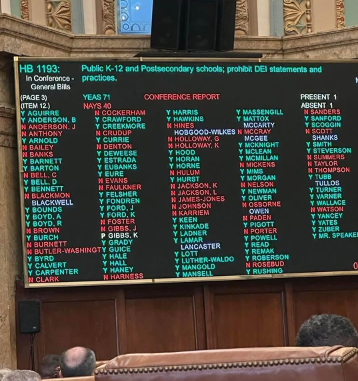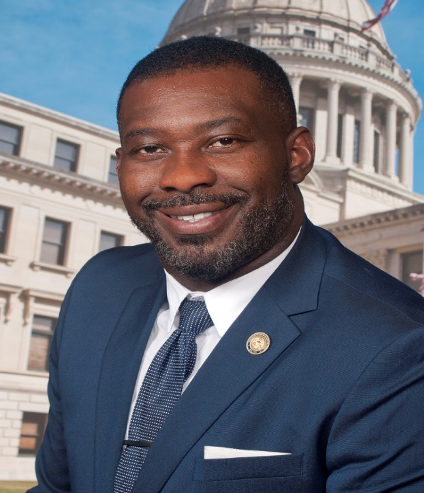
By Edelia “Dr. Jay” Carthan,
Contributing Writer,

Mississippi has become the latest state to pass legislation banning diversity, equity and inclusion (DEI) initiatives at public universities, setting off a wave of concern among educators, students and civil rights advocates who say the law threatens to reverse decades of progress in racial equity.
The Republican-led House passed House bill 1193 and voted 71 to 40 Tuesday. All Democrats in the chamber voted against it, joined by one Independent. No Democrats supported the measure, and several members gave impassioned speeches warning of the damage it could do—especially to Black students.
Among those speaking out was Democratic Rep. Bryant Clark, who rarely takes the podium but broke his silence to deliver a powerful rebuke of the bill. Clark is the son of the late Robert Clark, the first Black Mississippian elected to the state Legislature since the 1800s and the first Black speaker pro tempore since Reconstruction.
“We are better than this, and all of you know that we don’t need this with Mississippi’s history,” Clark said. “We should be the ones that say, ‘listen, we may be from Mississippi, we may have a dark past, but you know what, we’re going to be the first to stand up this time and say there is nothing wrong with DEI.’”
The legislation bans the use of state funds for any DEI office, program, training or activity in Mississippi’s public colleges and universities. While supporters claim the bill protects students from what they call “divisive ideologies,” opponents say it will strip away vital resources from students of color, LGBTQ+ students and others who rely on these programs for support, belonging and academic success.
According to data from the Mississippi Board of Trustees of State Institutions of Higher Learning:
● Black students make up approximately 38% of total enrollment at Mississippi’s public universities
● At historically Black institutions like Jackson State University, the student body is over 90% Black
● Statewide, Black residents make up about 38% of the population – the highest percentage of any U.S. state.
Many advocates say DEI efforts are essential to addressing longstanding racial gaps in graduation rates, representation among faculty, and access to mentorship and professional development. At the University of Mississippi, for example, Black students make up about 14% of the student population, while white students account for more than 75%.
Student groups and campus leaders warn that eliminating DEI programs could drive down retention and morale for underrepresented students.
“This bill is a slap in the face to every student who has ever benefited from a support system that actually sees them,” said Jasmine Howard, a political science major at Mississippi State University. “We’re not asking for special treatment. We’re asking for the same shot at success.”
Nationally, at least 20 states have introduced similar legislation targeting DEI in higher education. Mississippi’s bill stands out for the breadth of its restrictions and the symbolic weight it carries in a state with a long and painful civil rights legacy.
“I come from a family that has seen the worst of what this state can be,” Rep. Clark told his colleagues. “But we also believe in what it can be. This bill is a step backwards.”
Programs Now at Risk
This bill doesn’t just attack abstract ideas – it threatens real, life-changing support systems. Here are some of the programs that could disappear:
● Colleges & Universities:
● Multicultural Affairs Offices
● LGBTQ+ Resource Centers
● Black Student Unions and Cultural Centers (if institutionally funded)
● Women’s and Gender Equity Initiatives
● DEI-related scholarships, fellowships and internships
● Bias Response Teams
● Diversity orientation sessions
● Inclusive hiring practices
● Faculty workshops on cultural competency, bias or anti-racism
● K-12 Public Schools
● Culturally responsive teaching programs
● Restorative justice and equity-based discipline programs
● Professional development on inclusive instruction
● Events celebrating Black History, Hispanic Heritage or other cultures
● Safe spaces and student clubs supporting marginalized identities.
These aren’t just “woke ideas” – they are programs designed to close achievement gaps, affirm identity, reduce discrimination, and help students and educators feel seen, valued and heard.

Be the first to comment